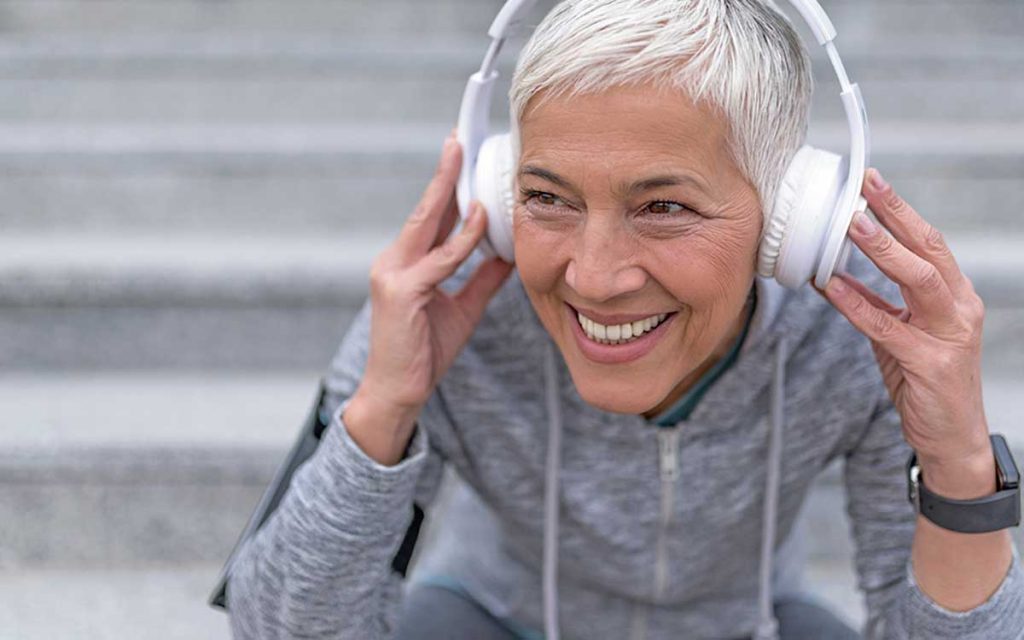There are many factors to consider when choosing headphones, but when deciding whether to purchase huge earmuffs or earbuds small enough to hide in your ears, you are also making a decision that can permanently affect your hearing. Pricier models may offer clearer sound or wireless capabilities, but you should consider whether the headphones will potentially harm your hearing.
How common is headphone hearing loss?
Hearing loss among children and teens was very rare in the 1980s. But something has changed. Hearing loss is becoming much more common among young people in their teens and 20s. According to a 2017 study by the Official Journal of the American Academy of Pediatrics, more than 15% of 12- to 19-year-olds suffer from hearing loss greater than 15 decibels.
Hearing loss is even more prevalent among individuals in their 20s. According to a 2019 Centers for Disease Control study, 20% of people in their 20s suffer from some degree of hearing loss or tinnitus. That same CDC study found that more than half of those with hearing loss in their 20s were experiencing hearing loss completely unrelated to their occupations.
The CDC study found that in addition to loud experiences like mowing the lawn or attending a loud concert, many young people had damaged their hearing by using earbuds or headphones to drown out background sounds. As those sounds became louder, young people would increase the volume on their headphones, which would often lead to early hearing loss or tinnitus.
Today, nearly every kid has a pair of headphones attached to a computer tablet or smartphone, and most adults do, as well. Usage is much higher because modern music and video game devices can fit in your hand.
How do headphones cause hearing loss?
Normally, if music is loud, you won’t sit right next to the speakers. Distance reduces how loud music is and some of the damage caused by it.
Headphones bring the sound directly to your ear. If the volume is at 85 decibels, you’re getting a full 85 decibels in your ear canal, which will cause permanent damage within roughly eight hours of exposure. If the music is high pitched like a violin or soprano voice, the damage may occur more rapidly.
Some headphones can be increased to 120 decibels – enough to cause instant, irreversible damage. Sound waves at this volume can cause immediate damage to your inner ears.
How to choose & use headphones with hearing in mind
Here’s what to consider when using headphones or earbuds.
Limit long-term exposure to headphones
If you listen all day at work or home, you’re probably doing damage that will get worse over time. Give your ears a break once in a while. Ideally, you should never listen to headphones for longer than 60 minutes without a 10- to 15-minute break.
Noise-canceling headphones offer the best listening experience with less damage to hearing
Because noise-canceling headphones block outside noise, you can listen to audio at a lower sound level. Your music will not have to compete with external sounds, and you’re less likely to damage your hearing with noise-canceling headphones.
Never try to drown out noise
If you don’t have noise-canceling headphones, never try to drown out a noisy environment. You’re certain to cause damage to your hearing through increased exposure to loud noises.
Restrict earbud usage
People love earbuds because they’re so discreet, but using them can cause more damage than headphones because they bring the sound directly into your ears with no buffer.
Keep the volume below 60%
Determine how loud your headphones go and never turn them past the 60% mark. Set your limit at 60% of the full volume for no more than 60 minutes. If you must listen longer, lower the volume accordingly.
There are some experts who believe 80% of the maximum volume for 90 minutes is acceptable, however, this is only the case when using less powerful headphones. When it comes to your ears, you should always err on the side of caution.
Always use both earpieces
Some people will listen with only one earbud in and the other one dangling. This can make your music sound artificially low, because you will hear more street traffic, voices, etc. Always use both earbuds to make sure the volume is set appropriately.
Consider getting a Bluetooth hearing aid
A Bluetooth hearing aid works with your smartphone, TV and other compatible devices. If you need or already have a hearing aid, this is generally a better option than headphones. Hearing aids help regulate how sound enters the ear to ensure it’s clear, but not too loud.
If you’ve been using headphones for years, regardless of age, it’s important to get a hearing test. Don’t wait. The hearing test will allow you to find out if you’ve experienced some level of hearing loss and then you can take the necessary steps to protect your hearing.


